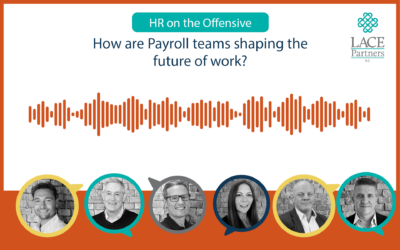Over the last few weeks there have been a number of articles that have talked about ‘copycat layoffs‘, with the World Economic Forum even adding the term to its list of the ‘biggest buzzwords’ of 2023. In today’s special blog we’ve asked Chris Horton from our team to give a LACE perspective on this recent phenomenon, as well as providing some insight in to the implications of this behaviour by businesses.
In recent years, the tech industry has experienced significant growth and success, with many of the world’s largest companies falling under the umbrella of “big tech.” However, with this success has come a trend of layoffs, which can have a damaging impact on these companies in several ways. Google, Amazon, Microsoft, Netflix, and other well-known players have announced significant cuts over the last few months. Are these necessary for the long-term success of the company, or copycat behaviour that in the short term may satisfy investors/shareholders but in the long term rarely bring advantage to the company?
The impact on culture, morale, reputation and innovation
Firstly, layoffs can have a negative impact on workplace culture and employee morale. In many cases, they are seen as a sign of financial instability or decline and can create fear and uncertainty among employees. This can lead to a decline in engagement, increased absenteeism, and even a loss of trust in leadership. A negative company culture can also make it difficult to attract and retain top talent, which is crucial for long-term success.
Secondly, layoffs can also have a negative impact on a company’s reputation. In the age of social media, news of layoffs can spread quickly and easily, which can damage a company’s brand image and reputation. Poorly executed process can have an even more damaging effect. Customers and partners may view the company as unstable, unreliable or unethical – all of which can lead to a decline in business and partnerships. This can also impact the company’s ability to attract new customers and retain existing ones.
Thirdly, layoffs can have a negative impact on a company’s innovation and productivity. When employees are laid off, it can create a knowledge gap and disrupt the flow of work. This can lead to delays in projects, a decline in productivity, and a lack of innovation. Additionally, layoffs can lead to a loss of key talent, which can be difficult to replace and can have a long-term impact on a company’s ability to innovate and compete.
Furthermore, layoffs can also have a negative impact on a company’s financial performance. While layoffs may be seen as a cost-saving measure, the short-term savings may be outweighed by the long-term costs. For example, the costs associated with redundancy/severance packages, outplacement services, and legal fees can add up quickly. Additionally, the loss of productivity and innovation from those who remain in the company can impact a company’s revenue and growth potential.
Lastly, layoffs can also impact a company’s relationships with investors and stakeholders. Investors may view layoffs as a sign of financial instability and may become hesitant to invest in the company. Similarly, stakeholders may view layoffs as a sign of mismanagement and may lose confidence in the company’s leadership.
Consider the long-term implications
In conclusion, while they may be seen as a necessary evil in the short-term, layoffs can have a damaging impact on a company’s culture, reputation, innovation, productivity, financial performance, and relationships with customers, potential employees and investors. When faced with the challenges that might lead to potential lay-offs, the C Suite must carefully consider the longer-term impacts of such action and thoroughly explore alternative solutions, and their conscience, before taking such a drastic decision. Ultimately, a company’s success is built on the strength of its employees and their commitment, and unwarranted, poorly executed layoffs can undermine that strength and threaten its future.
Additional references:
- Jeffrey Pfeffer: Professor of Organizational Behaviour at the Graduate School of Business. He has written extensively on the topic of downsizing and its impact on employees and organizations.
- Paul Oyer: Professor of Economics at the Graduate School of Business. He has studied the effects of layoffs on worker productivity and firm performance.
- Charles O’Reilly: Professor of Organizational Behaviour at the Graduate School of Business. He has conducted research on the social and psychological effects of layoffs on employees, as well as the impact of layoffs on organizational culture.
- Matthew Bidwell: Professor of Management at the Wharton School of the University of Pennsylvania (formerly at Stanford Graduate School of Business). He has studied the effects of layoffs on displaced workers and their subsequent employment outcomes.
If you want to talk to a member of the LACE team about any of the challenges discussed in today’s blog, reach out to us using the form below and we’d be happy to talk.






